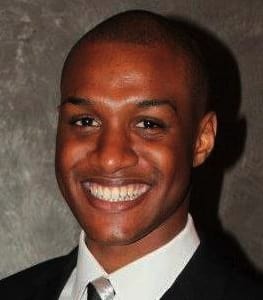Ernest Owens (pictured) is a multimedia African-American journalist who recently traveled to Ghana. The visit to the continent left him with the following poignant takeaways about what it means to be Black in the United States.
SEE ALSO: Eliminating the Chasm Between Africans & Black Americans
Keep Up With Face2Face Africa On Facebook!
Writing “5 Lessons Traveling to Africa Taught Me About Being Black in America” for the  Huffington Post, Owens, says that being in Africa taught him what it is like to be the majority — rather than a minority — and how the experience does indeed impact one’s self-esteem and confidence:
Huffington Post, Owens, says that being in Africa taught him what it is like to be the majority — rather than a minority — and how the experience does indeed impact one’s self-esteem and confidence:
During my stay in Ghana, for the first time in my life I felt what it was like to be in the majority. Most of the population is black and the experience of seeing my skin color on nearly every television station, public arena, and facet of society gave me a psychological gratification and confidence. A sense of pride that allowed me to walk in the street without feeling targeted. A level of high self-esteem when I told people my professional aspirations and was sincerely heard and not interrogated. My time in Africa gave me a first-hand look at what it feels like to not be a second-class citizen in society.”
And as opposed to his experience in the United States, where discussions about slavery are often suppressed and avoided, Owens says that, in Ghana, the topic of slavery is out in the open:
“Get over it,” they tell us back home in the United States. There is absolutely no way we can and should when it paints a larger picture of the current systematic obstructions that are relevant to our present. In Africa, slavery is discussed and they actually have renowned museums and tourist attractions that cater specifically to the topic… I’m still waiting America.”
Owens also goes head to head with “Cosby Show” actress Raven Symone who in an interview with talk show maven Oprah Winfrey said last month that she didn’t want to be called “African American.” Instead, Symone said she preferred to just be labeled “American.”
Her comments set Twitter on fire, with many criticizing the actress for distancing herself from both her people and heritage.
Owens joined in the fray, adding:
Just because you cannot find your exact roots on a continent, doesn’t mean they aren’t apart of your ethnic make-up. That would be just as dumb as assuming that not knowing your father means you weren’t conceived by one. Coming to the realization of what it means to be an African-American rather than simply “American” gives me a more honest rationale as to why I face the current obstacles in a nation that speaks of “equality and justice for all.” Furthermore, it re-teaches me that my legacy didn’t start when my ancestors entered the West from slave ships (that’s only the second half of my identity), but that there was an enriched culture before America — and that was in Africa.
Ultimately, though, Owens sees the path forward as a coming together of African and African Americans. The award-winning journalist alleges that too often, rather than building bridges between us, we allow ourselves to be mired in stereotypes and counterfeit cultural exchanges:
Enough with just having cultural food and music fairs… let’s have a discussion about universally helping one another socially. When I attended college, it often aggravated me how black Americans felt Africans were another foreign group of people they could not identify with. And it was also troubling to see some native Africans look down on blacks in the country for not feeling as self-confident and culturally strong about their heritage. At this very moment in our present history, we now more than ever need to put down our media-driven stereotypes about one another and have real conversations about it. I am tired of seeing too many people of color help one another among regional affiliations and not the diaspora as a whole. Because the truth of the matter is that the rest of the world do not see us any differently and by strengthening our connections we can better combat these problems.
Read the rest of Owens thought-provoking essay here.
SEE ALSO: The Siddi People: The African Population of India, Pakistan










